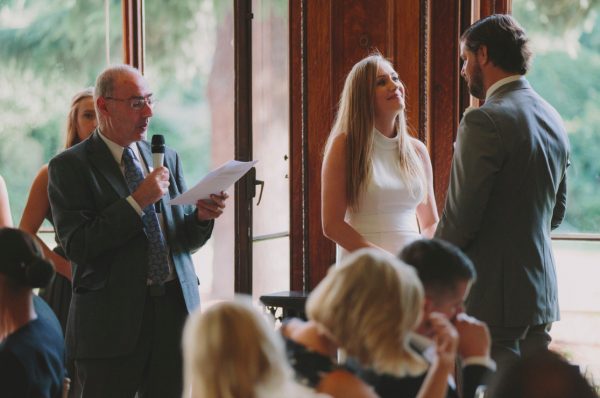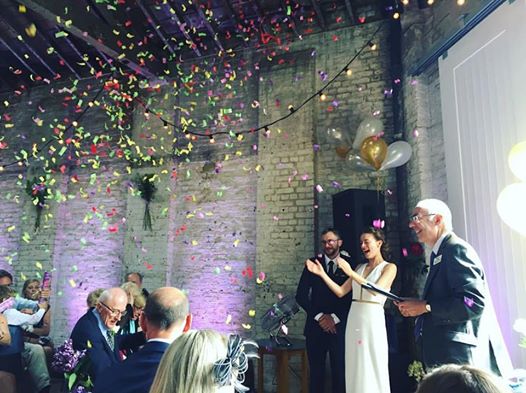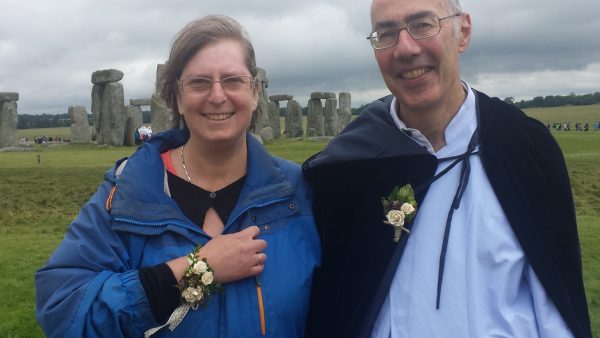
by Michael | Feb 7, 2022 | Blog
A lot of folk don’t need much of an excuse for a celebration.
Well, that was the scenario up until a couple of years ago. Now people tend to be more cautious. They are often hesitant to plan ceremonies. What if social distancing spoils things? What if lockdown kicks in again, and everything has got to be cancelled or postponed?
I don’t know if my opinion may start a backlash, but I feel that things in England seem to have calmed down, both politically and in terms of the epidemic. Relatively speaking, at least.
Ceremonies are being booked these days – including some large, high-end ones.
So, given that we have a (faint) green light, what sort of ceremony might you want to mark?
Obviously!
Major life-cycle events are back in demand – and rightly so. People really ought to mark a big event. It’s criminal to ignore a one-off that really means so much to so many people and is a vital milestone in individuals’ or couple’s lives.
Clearly, this highlights weddings, which need little introduction on these pages. Suffice it to say, that I believe that your big day should be celebrated the way YOU want it. (One major reason why I became a civil celebrant!)
More cautious or budget-conscious couples can opt for micro-weddings, but a lot of people are choosing a bigger ceremony, and that’s as it should be.
Other Causes for Celebration
Other events that deserve to be marked include Vow Renewals. There are a number of reasons (apart from an excuse for a get-together) why people opt for this ceremony. These include a milestone, like an anniversary ending in -5 or -0. There may be a desire publicly to declare one’s love (again), or it may be that circumstances have changed. You might want to replace your original vows with more relevant ones. Or perhaps you have children now, and wish to include them in your ceremony. You might even want to acknowledge coming out of a bad time, such as illness, unemployment – or even infidelity!
A Vow Renewal ceremony can be a way to cement your family harmoniously. The bonus is that you don’t need to register the ceremony legally and you can arrange it exactly as you want. (Step up the independent celebrant!)
If nature is particularly important to you, a handfasting may be a great idea. You can have it as part of a ceremony – or it can be the major focus. Most people find it beautiful and spiritually uplifting.
Naming ceremonies are popular. You can celebrate one on behalf of a baby or toddler, but you can also welcome step-children into the family after a remarriage. Again, a civil celebrant can draw up an appropriate and memorable service to mark the occasion.
There are other less conventional celebrations, such as marking a divorce or pet birthdays, and your celebrant will normally be happy to accommodate these too.
We are social animals. Let’s not allow ourselves to be deterred from having an occasional knees-up! These bring people together and put smiles back on faces. Let’s celebrate major life-cycle moments as they deserve and rejoice that we can do so!
I’d be happy to chat with you about any issues that may come up.
photo: mckinley_rodgers.com

by Michael | Mar 29, 2021 | Blog
When I’m planning a ceremony with clients, the question of music often comes up. Of course, some people know exactly what they want, but many need guidance. Advice will vary from person to person, but one thing to understand is that we’re not planning a standard ceremony. The whole point is that we are personalising it.
That means that there is not really a right or a wrong. It’s what you want that matters. Obviously, one consideration will be the guests! A piece that goes on and on would soon lose the audience, and not every genre will go down well. However, if that’s what reflects your personality, then it can go in to the melting-pot.
Therefore you’re not obliged to start a wedding with Mendelssohn’s “Wedding March”, lovely as it is. Nor do you need a religious or even classical piece, while the coffin is borne in at a funeral.
Celebration
Many brides at weddings I have conducted have entered to Pachelbel’s “Canon”. There have also been harpists or string quartets to accompany the bride. Oddly, I have also heard “Moonriver” and, by contrast, an aria from Handel’s “Samson and Delilah”. Schubert’s “Ave Maria” has been another choice. So there’s no real rhyme or reason.
From other people’s blogs I’ve selected some of the most popular pop songs.
Adele – “Make you feel my Love”
Al Green – “let’s Stay Together”
Stevie Wonder – “Isn’t she lovely”
Diana Ross & Lionel Ritchie – “Endless Love”
Elton John – “Can you feel the love tonight?”
Elvis Presley – “Can’t help falling in Love”
Bruno Mars – “Just the Way you are”
Doubtless, you could suggest your own favourite.
Funerals
Again, there’s a huge range of music genres in the funeral canon. The most popular exit music nationally seems to be either “My Way” by Frank Sinatra or Monty Python’s “Always Look on the Bright Side”. Andrea Bocelli seems to get in somewhere a lot of the time.
Music at my most recent funerals has ranged from George Formby and Dean Martin to Lesley Garrett and Eva Cassidy, Chris Barber to Chuck Berry, and Judy Garland to Richard & Adam, and Audrey Hepburn.
I usually shy away from heavy metal, but for the funeral of a biker (suicide), the family requested Metallica and “Nothing else Matters”. Until I actually listened to it, I assumed the worst, but it is a fine piece of music and was highly appropriate. I’ve suggested it subsequently too!
So, to revert to my opening remarks, unless you’re having a full religious service (in which case, you will have few – if any – options for the music), the world is your oyster, and you can have fun choosing something fitting.
Feel free to contact me, to discuss this further.

by Michael | Nov 16, 2020 | Blog
It’s mid-November. Christmas adverts on TV are already the norm. It will soon be time for wall-to-wall carols on the radio. The New Year will be upon us sooner than we realise.
A year ago, nobody could have foreseen the direction the new year would take. Without exception, everybody has been affected, to a lesser or greater extent. Job losses, health issues – even, deaths – isolation … the list goes on.
So, what will the future hold? Can we look forward to the next month or two? Dare we be positive about 2021?
Of course, I have no crystal ball. The threatened ‘spike’ may materialise. The virus may, however, have done its worst. Whether improved testing and the emergence of a vaccine will actually make a difference remains to be seen. We simply cannot tell.
All we can do is to let life go on, as best we can.
That means making plans again.
If you have forthcoming happy events, do consider marking them. It’s important to us as humans to celebrate. It might be a wedding, or an anniversary (especially, one ending in a -5 or -0). It might be a naming or a handfasting. It could certainly be a vow renewal. Just possibly, a promotion at work. But don’t ignore it.
Of course, whether you hold a micro-event or something larger depends on the date of your ceremony and what the current regulations will be.
So it may be a gamble. Thus it may be easiest to arrange something that can be adapted at fairly short notice. That probably entails liaising with your venue (if you’re booking one at all) and/or suppliers, and checking how flexible they are.
I believe that things will ease up in 2021 (may my words not come back to haunt me!). As social animals, we do need to break the isolation at some point. Hopefully, this can be done in a controlled way, and a ceremony may be exactly what the doctor (!) ordered.
If you are thinking of organising something a bit special, then please have a chat with me.

by Michael | Nov 4, 2019 | Blog
It can be exciting and fun to organise something a bit special when a major celebration like a big birthday or anniversary comes along. A party is one thing, or a night away or even a meal out for two, but could you do more?
Surprise!
Organising
an event will obviously involve guile and labour, especially if you want it to
be a surprise.
I recently attended a lunch at le Manoir aux Quat’ Saisons, where about 30 of us had been invited to celebrate Juliet’s 60th birthday.
Not as complex as all that, surely?
We had been invited by letter – and sworn to secrecy – over one year previously, by Juliet’s husband. He had set up a special e-mail address only for the replies. He had had to communicate with the venue only whenever he knew Juliet was out of the house.
For that weekend he found a pretext to get her to Oxfordshire without her suspecting what was afoot.
It all worked out, but, to say the least, was less than straightforward. (Not least when one guest accepted, cancelled and then later decided they would come after all! Or when we got stuck (fog-bound) on Guernsey the night before and looked like missing the event. Remarkably, we made it but that’s another story!)
Alternatives
Organising a celebration in a local restaurant for a dozen or so family members or friends should be simple and often lovely.
How about
making it a bit more special?
What about adding to it by having a celebrant prepare and deliver a short speech – perhaps about the life of the person being honoured?
Could you
hold a ceremony at home?
Then you might hold a short ceremony incorporating our star’s story and input from a few friends and/or relatives.
Some ritual could be included (such as lighting a Unity Candle or presenting the star with a red rose). Close family members might participate in the ritual.
A few people
might be invited to say a few words in honour of the star.
The whole to be facilitated by a civil celebrant, of course!
Whether or
not you choose to organise such an event secretly or openly, the hero will
surely be grateful for the efforts put in. Chances are, he/she will appreciate
being the centre of attention for a while.
So why not give this suggestion some thought? And who better to have a chat with than Michael?!
by Michael | Mar 1, 2016 | Blog
When I am preparing a vow renewal or wedding, I often ask the question whether the couple would like absent friends mentioned. Almost invariably, they do.
Of course, by “absent friends”, we mean friends or relatives who have been prevented from attending because of illness, infirmity or death. These are likely to be people who would certainly have wanted to be part of the proceedings and who would have been more than welcome to have attended.
There are exceptions, but the couple usually wants to mark the fact, but not make too much of it. Understandably, they don’t want to bring down the atmosphere of a happy ceremony.
I often proffer a few words, naming the individuals and stating how much they are missed. Sometimes a candle is lit or a brief silence is observed. We usually do this early on, so that the sad tone does not impinge on what follows.
Occasionally, people do want a more significant commemoration, so here are a few suggestions that might suit.
Symbols commemorating a Loved One
- You might include one of their favourite type of flowers in your buttonhole/bouquet.
- You might choose to wear something connected to (or worn by) your loved one. Perhaps it might be earrings or cufflinks, or even something sewn into the inside of your dress/suit.
- You could place some flowers at the place where your loved one would have been sitting, possibly with a note or poem.
- You could also place a photo of your loved one somewhere (it might be – but doesn’t have to be – prominent). You might even place candles there (bearing health and safety in mind, of course!).
Alternatives
Instead of a present, you could ask guests to donate some money to a charity loved by, or associated with, your loved one.
Some of the above are a bit ‘over-the-top’ for many people, but, instead, you could drink a toast to your absent friends at the reception.
My advice (but I accept that it is a personal decision for the couple concerned) is to keep the commemoration reasonably low-key. Guests don’t really want to hear a long list read out, especially if they’re excited about the ceremony to come. Moreover, the mood of the proceedings should be happy. We are marking a celebratory event, rather than what might appear to be a memorial service.
However, as we have seen, there are tasteful and meaningful ways of acknowledging your absent friends, and these certainly have a part to play in the big day.




